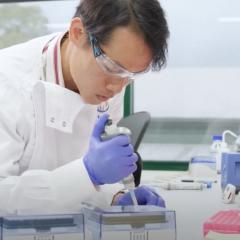University of Queensland study suggests a blood screening test may improve our ability to identify women at risk of developing preeclampsia.
Researcher Dr Carlos Salomon Gallo, from the UQ’s Centre for Clinical Research Exosome Biolog Lab said to have a meaningful impact on the mortality resulting from preeclampsia you must be able to identify those women at risk.
The study looked at the extracellular vesicles and mainly the exosomes, known as the “fingerprint” of the cell origin, and their metabolic status.

“The findings suggest that the amount of placenta-derived exosomes present in maternal blood may improve our ability to identify asymptomatic women at risk of developing preeclampsia,” Dr Salomon Gallo said.
“A simple blood test could act as an early pregnancy screening process allowing for early intervention strategies to reduce the incidence of poor pregnancy outcomes.
“This would not only improve patient management and triage to intervention therapies (such as low dose aspirin), but improve health outcomes for mother and baby and would also be economically cost effective,” Dr Salomon Gallo said.
The paper was published in The Journal of Clinical Endocrinology & Metabolism and is a collaboration between the Ochsner Medical Center and The University of Queensland as part of the UQ-Ochsner Seed collaboration grant.
Media: Brian Mallon, b.mallon@uq.edu.au, 07 3365 5254.



